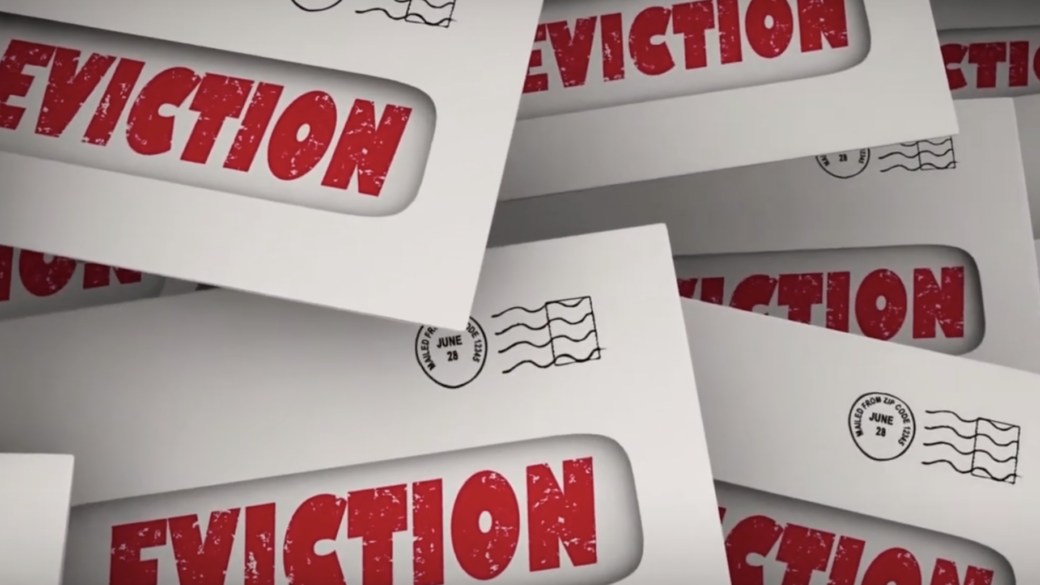Yes, a notice to vacate can be withdrawn. However, this requires agreement from both the landlord and the tenant. Also, note that local home rental laws vary. So, to ensure compliance, review local regulations or consult a lawyer. In a general sense, if both the tenant and landlord are in agreement, the notice to vacate can be rescinded, allowing the rental arrangement to persist as it was.
Can a Notice to Vacate Be Withdrawn?
Notices to vacate pose a significant hurdle for both homeowners and tenants. While this may seem like a complex issue, this article is here to simplify it for you. Can a notice to vacate be withdrawn?
We’ll provide you with a comprehensive understanding of eviction notices, encompassing their time-frames, reversibility, and intricate nuances. Our goal is to guide you through every facet in a clear and accessible way, ensuring that your questions are answered and that you feel empowered to handle eviction notice situations with confidence.
How Long is a Notice to Vacate?
It depends on many factors, including the reason for the notice and your rental contract. Rent arrears may result in a few days to a few weeks of notice. However, in cases where there are no pressing matters and the rental agreement is reaching its natural conclusion, longer notice is customary, typically around 30 days.
It’s of utmost importance to thoroughly review your rental agreement and familiarize yourself with the local regulations in your area to determine the precise time frame you have at your disposal.
Diverse locations have distinct guidelines, and your rental agreement should explicitly outline the regulations pertinent to your circumstances. This practice aids in understanding what lies ahead and the necessary steps to take when faced with either receiving or issuing a notice to vacate.
Landlords needing help writing notice to vacate letters can use a template we found. Check it out here.
Different Types of Tenant Notices to Vacate
When it comes to transitioning out of a rented property, tenants have various types of notifications that they can provide to their landlords. Let’s discuss these in a straightforward manner, making them easily comprehensible.
1. End of Lease Notice
This is a typical form of notice. It is provided when the tenant intends to depart at the conclusion of the lease period. To illustrate, if you’ve entered into a one-year lease agreement, this notification informs the landlord of your intention to vacate once that year elapses. It serves as a formal indication that you will not be staying beyond the initial lease period.
2. Month-to-Month Notice
In some instances, individuals have rental arrangements that lack a predetermined end date and instead operate on a month-to-month basis. In such situations, tenants often provide a notice indicating their intention to vacate within the upcoming 30 days. This is like giving everyone a heads-up about upcoming changes and what to expect.
3. Early Lease Termination Notice
Unexpected events can force a tenant to leave before the lease expires. This notice is intended for such instances. It communicates to the landlord that the tenant must depart earlier than originally agreed and typically includes a justification, such as job relocation or a family emergency.
4. Lease Violation Notice
This particular notice differs slightly. The tenant presents it when there is a concern, such as the rental property’s safety or the landlord’s lease violations. It implies that the tenant might consider moving out if the issue remains unresolved.
Legal Requirements When Giving a Notice to Vacate
A notice to vacate must be executed legally. Here are some basic guidelines to provide clarity on what steps need to be taken:
1. Writing the Notice
Putting the notice in writing is advisable. This approach maintains clarity and minimizes the chances of misinterpretation. It is similar to making an official record of one’s intention to leave.
2. Include Necessary Details
The notice must include all necessary information. This should include the date, rental property address, and tenant move-out date. Clarity and thoroughness are essential in this regard.
3. Follow Timing Rules
Notices are usually required at a specific time before moving out. For instance, a 30-day notice implies informing the landlord 30 days before the planned departure date.
4. Delivering the Notice
The method of delivering the notice to the landlord is significant. It can be done by hand-delivery, mailing, or email.
5. Keep a Copy
Maintaining a copy of the notice for your personal records is a wise practice. This provides evidence of the communication, including when it was sent or received, which can help resolve disputes or clarify issues.
Please note that regulations vary by location and rental agreement. When in doubt or if you have uncertainties, seeking guidance from local laws or consulting with a knowledgeable expert is a prudent course of action.
Reasons Why a Tenant Would Want to Withdraw a Notice to Vacate
There are several reasons why a tenant might opt to retract a notice to vacate after it has been issued. Here are some straightforward explanations for this change of decision:
1. Change in Circumstances
Life’s unpredictability can play a significant role. A tenant may have planned to move due to a new job or family situation, but circumstances changed. For instance, the job opportunity could have fallen through, or a personal situation may have arisen, rendering the move unnecessary or unfeasible.
2. Finding a New Place
Securing a new residence can pose challenges. A tenant might have served notice with the intention of moving to a different rental but encountered difficulties in finding a suitable or budget-friendly place within the expected time-frame. Consequently, they might choose to extend their current stay for a bit longer.
3. Lease Terms
Once notice has been provided, a tenant might reevaluate the terms of the prospective new lease. Perhaps the associated costs are greater, or the regulations are more stringent, causing the current residence to appear as a preferable option.
4. Landlord Response
A notice to vacate may have been served due to rental issues like maintenance. However, if the landlord commits to promptly resolving these issues, the tenant may opt to stay and gauge whether the situation improves.
Reasons Why a Landlord Would Want to Withdraw a Notice to Vacate
Landlords, too, have their reasons for reconsidering a notice to vacate. Here’s an overview of why a landlord might decide to change their stance:
1. Reliable Tenants
Valuable tenants are an asset. If a landlord has given notice but recognizes that the tenant is reliable and maintains the property well, they may opt to retain them and retract the notice.
2. Market Conditions
The housing market’s unpredictability plays a role. A landlord could serve notice with intentions to sell or lease the property at a higher rate. However, if the market is not performing well, it might be more prudent to retain the current tenant.
3. Cost and Effort
Preparing a property for new tenants involves both effort and expenses, including cleaning, repairs, and advertising costs. Therefore, a landlord may prefer to retract the notice and keep the current tenant to avoid these additional costs.
4. Legal Considerations
Renting and eviction laws can be intricate. A landlord could serve notice and subsequently encounter legal considerations that make it more advantageous to withdraw it, often related to eviction regulations or tenant rights that need to be adhered to.
Final Thoughts on a Notice to Vacate being Withdrawn
Comprehending notices to vacate might appear intricate, but it can be simplified. Whether you’re a tenant or a landlord, understanding the motives and regulations concerning issuing and retracting notices can streamline the process. The essential elements include transparent communication, adaptability, and awareness of legal obligations and individual entitlements.
By staying informed and factoring in the diverse aspects at play, both tenants and landlords can reach choices that are rational, equitable, and advantageous. Keep in mind that local laws and lease agreements are pivotal in guiding actions and decisions related to notices to vacate, so be sure to take them into account in each unique situation.


